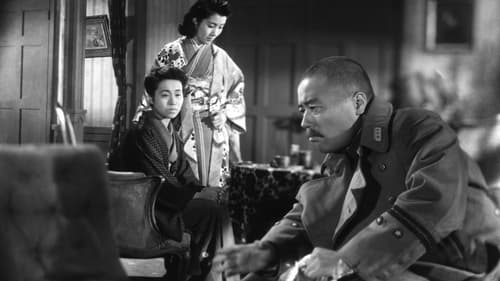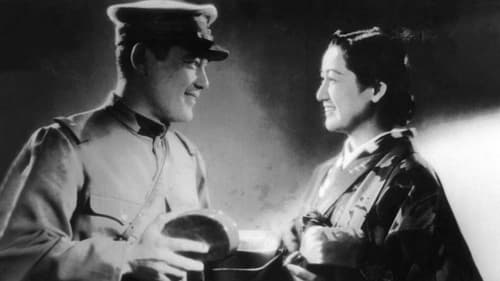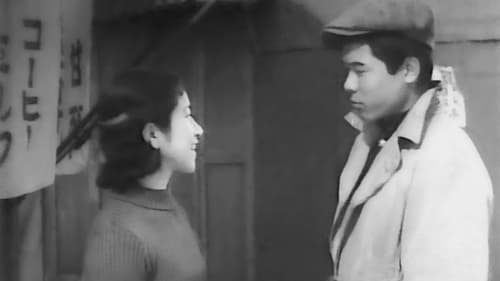
Taji Heibei
1943 год. Итиро Осонэ устраивает в семье праздник с печальным привкусом – проводы жениха своей младшей сестры на фронт. В тот же день его арестовывают за пацифистскую статью. Его дядя Иссэй, кадровый военный, перебирается жить в дом Итиро и пытается «восстановить порядок» в семье в соответствии со своими верноподданическими убеждениями и личной корыстью...

1928 год. До начала войны ещё далеко, но из-за финансового краха компании герой лишается выгодной работы. Как теперь ему содержать жену и сына-школьника? В такой ситуации каждый может впасть в депрессию. Причин беспокоиться у героя предостаточно, к тому же его жена неважно себя чувствует. Где взять маленькому человеку силы, чтобы преодолеть все трудности?

In this semi-documentary, an older locomotive driver is tasked with training younger ones and is currently training two in particular. The old man is finding the task overwhelming as it is hard work with practical lessons and classroom components. His wife has died, but he has three daughters with the oldest taking care of her younger siblings.

Masako's father
A "slice-of life" film about a group of high school girls in 1940s Japan.

A Fond Face from the Past is also set in a rural community, specifically a village outside Kameoka, near Kyoto. In some ways this short, thirty-six-minute film is Naruse's most moving negotiation of the militarist restrictions of the time, perhaps because it is also his most direct engagement with the culture of war. When a newsreel comes to Kameoka featuring a local man named Yoichi, it causes some excitement in the community and, of course, in Yoichi's own family. First of all his mother makes the newsreel (Nippon News, no. 14), which begins with the same marching music that opens his own film, followed by a curious baby judging context in Los Angeles featuring two hundred Japanese babies. Released in January 1941, almost a year before the pacific war begins, this “found footage” is indicative of Japanese imperialist ambitions beyond Asia long before Pearl Harbor.

The year is 1936. Ôhinata-mura was a very poor village between deep valleys. Soncho, the village head is trying to collect the village taxes from the villagers but he knows full well that no one can afford to pay the village tax which has been unpaid for years...

Part two of two.

Wartime propaganda filmed by the Japanese in occupied China, Shirley Yamaguchi portrays an orphan rescued from the streets by a kindly Japanese merchant marine officer. Part spy thriller and part Shanghai travelogue, it was part of a popular series known as "Chinese Continental Friendship" made by the occupying Japanese in China.

Song of the White Orchid was a co-production of Toho and Mantetsu, the railway that served the colonial region of Manchuria, and the first film in the Kazuo Hasegawa/Shirley Yamaguchi (Ri Koran) “Continental Trilogy.” Handsome Hasegawa (representing Japan) runs up against an impertinent Yamaguchi (representing the continent); not surprisingly, in the course of the film the woman comes around and realizes the benevolent intentions of the Japanese. In Song of the White Orchid Yamaguchi leaves Hasegawa, who plays an expatriate working for the railway, because of a misunderstanding. She joins a communist guerilla group plotting to blow up the Manchurian railway. Learning of the subterfuge that led to the misunderstanding, she renews her faith in Hasegawa—and by extension Japan—and tries to undermine the plot.

君塚榮治郎

Japanese film based on the life of writer Ichiyo Higuchi (1872-1896).

This film attempts to reconstruct the tension of the Battle of Shanghai through an episode in an understated way, introducting its story in a documentary mode. In the film story, Japan's marine regiment protects Japanese residents and Chinese refugees-women and young children-from rampant street fighting, Shanhai Rikusentai unsparingly uses its first eight minutes for an official-mannered self-justification of the war. From the viewpoint of explaining Japan's military operation,the narration refers to the city s spatial division in sync with maps on screen.

Ishimura's fellow worker
В семье господина Исимуры 11 человек – он сам, его жена, пять сыновей, две маленькие дочки и двое престарелых родителей. Отец и трое старших сыновей работают на фабрике. Несмотря на это, семья еле сводит концы с концами. Никто из братьев не может позволить себе не работать. Кризис наступает, когда самый старший брат Кийти заявляет о своем желании оставить фабрику и поступить в техническое училище.

Chicken Thief
An episodic film about life in and around a rural police station and the people it serves.

Venice Film Festival 1939








